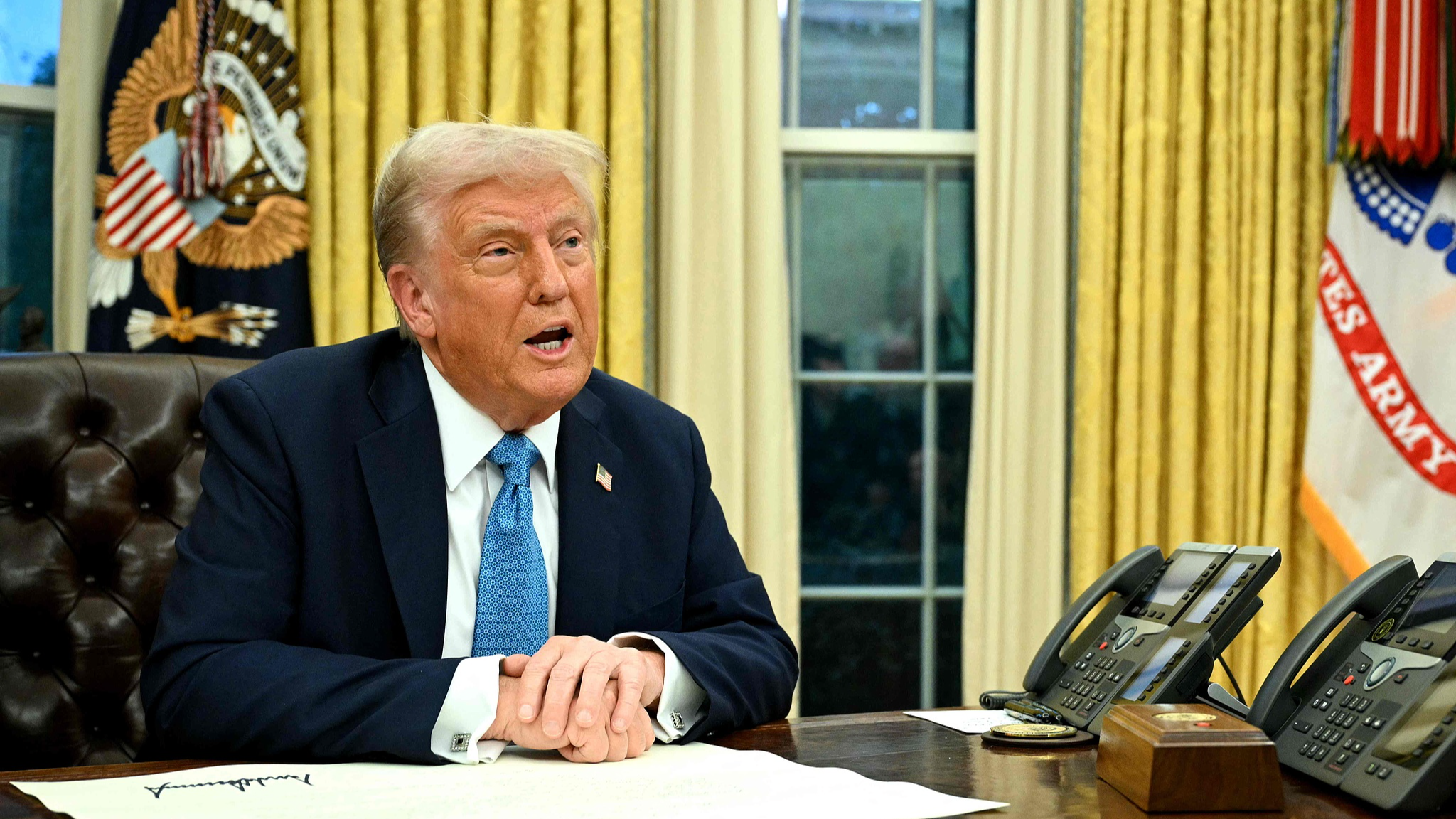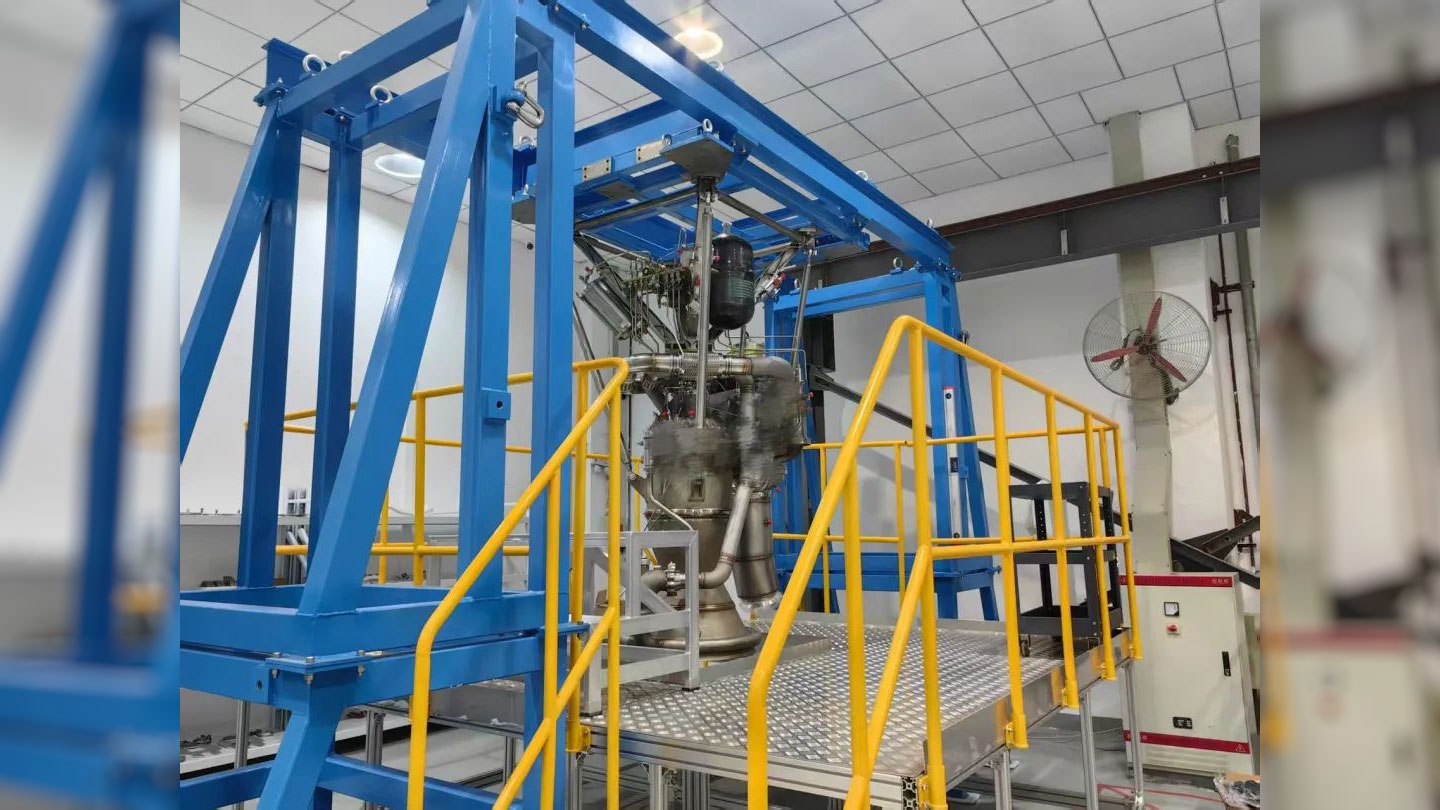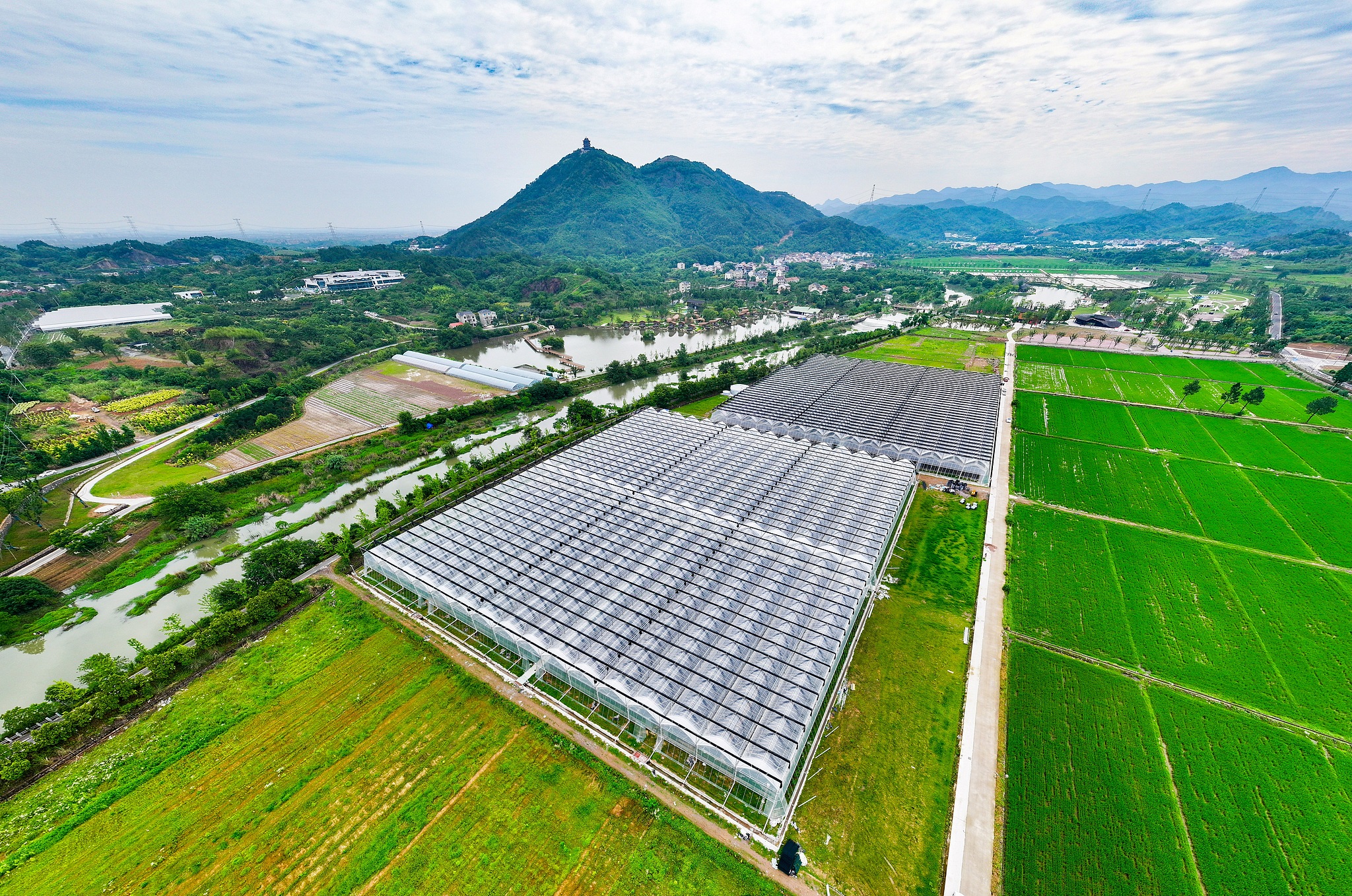Tariffs are no 'panacea' for US troubles
Chen Weidong is deputy dean of the Institute of Foreign Law and Governance at University of International Business and Economics. The article reflects the author's views and not necessarily those of CGTN. It has been translated from Chinese and edited for brevity and clarity.

US President Donald Trump speaks to press after signing an executive order in Washington, DC, US, January 31. 2025. /VCG
The White House released a fact sheet on February 1. asserting that illegal immigration and drug trafficking – particularly fentanyl – have posed an "extraordinary threat" to the United States, constituting a national emergency under the International Emergency Economic Powers Act (IEEPA). As a response, the administration has announced a 25 percent tariff on products from Canada and Mexico and a 10 percent tariff on goods from China.
However, the fentanyl issue appears to be merely a pretext for the Trump administration to impose tariffs. Under the IEEPA, the US president can enact economic restrictions during a national emergency without congressional approval. Moreover, the president has the authority to declare such an emergency and implement related measures without undergoing specific investigative or procedural requirements. Trump has long championed tariffs and previously classified the fentanyl crisis as an "extraordinary threat," laying the groundwork for his administration to declare a national emergency and wield the "tariff hammer" at will.
Fentanyl abuse is a deeply seated domestic challenge within the US. The origin lies in systemic social problems and governance deficiencies. Yet, the Trump administration has continued to attribute these challenges to foreign countries, promoting tariffs as a "panacea" for America's woes. Under the guise of national security, the administration has leveraged the emergency declaration to impose tariffs, pressuring trade partners into accepting Washington's demands without worrying about being held accountable by the World Trade Organization (WTO). Additionally, imposing tariffs can serve as a means to boost government revenue, incentivize the return of manufacturing, and reinforce Trump's "Make America Great Again" campaign rhetoric.











